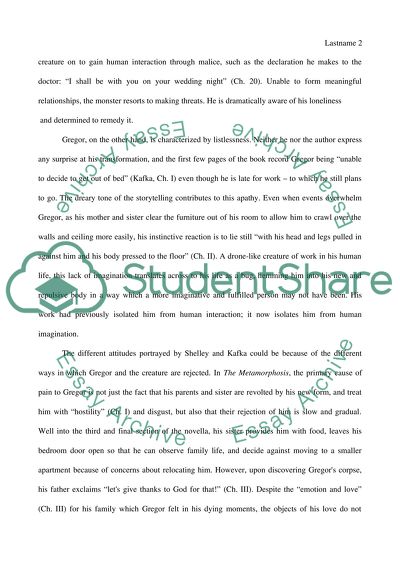Cite this document
(“Isolation and Alienation in Frankenstein and The Metamorphosis Essay”, n.d.)
Retrieved from https://studentshare.org/literature/1416707-isolation-and-alienation-in-frankenstein-and-the-metamorphosis
Retrieved from https://studentshare.org/literature/1416707-isolation-and-alienation-in-frankenstein-and-the-metamorphosis
(Isolation and Alienation in Frankenstein and The Metamorphosis Essay)
https://studentshare.org/literature/1416707-isolation-and-alienation-in-frankenstein-and-the-metamorphosis.
https://studentshare.org/literature/1416707-isolation-and-alienation-in-frankenstein-and-the-metamorphosis.
“Isolation and Alienation in Frankenstein and The Metamorphosis Essay”, n.d. https://studentshare.org/literature/1416707-isolation-and-alienation-in-frankenstein-and-the-metamorphosis.


